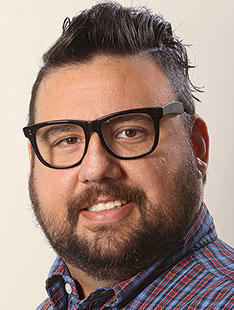From the Editor: Last Words
Since PAW’s first year of publication — 1900 — and continuing into the age of social media, memorials have been a must-read section of the magazine, offering intimate life stories of both the famous and the unknown.
Episcopal Bishop Franklin S. Spalding 1887, a Marxist, “won the hearts of many otherwise socially conservative people by coming out frankly and openly for Prohibition as the only logical and available cure for the evils of the liquor traffic,” read a memorial in April 1915. Seaman Calvin Wight 1892 “travelled all over the seven seas, visited almost every well-known port in civilized and uncivilized countries, and was shipwrecked so often that his classmates in ’92 used good-naturedly to call him ‘Sinbad.’” As New York’s street-cleaning commissioner, John Woodbury 1879 began using refuse to fill in swamps, as well as using energy from burning trash to light approaches to the Williamsburg Bridge. “Though he brought down upon himself abuse from interested persons,” the memorial noted, “he continued his improvements with great profit to the public.”

This issue — PAW’s annual tribute to alumni who died in the previous year — includes an expanded memorials section, prepared by editor Nicholas DeVito, who sees the impact of the section as many opportunities “to honor a life.”
PAW memorials are written by class memorialists, who still share stories of simple life challenges and fantastic adventures. It’s a tough job. “Sometimes, it’s difficult to realize that a classmate I knew is gone, but in most cases I am both consoled and impressed by the quality and achievements of the life that I have tried to encapsulate in 200 words,” writes Ken Perry ’50, who over 17 years has written memorials for 368 men.
“What do I get out of it? A feeling of satisfaction that I am doing something for the class,” writes David Bowen ’43, who notes that the job can make him feel that he should have achieved more himself. Bowen’s classmates and their spouses are in their mid-90s, and it can be difficult for him to locate and connect with survivors (though he keeps a spreadsheet of memorials and corresponds with PAW via email).
George Brakeley ’61 writes memorials for his own class and for 1941, and finds the work both difficult and satisfying, leading to friendships with classmates’ family members. Some of the memorials he writes are challenging to report; some are simply sad. One classmate, he recalls, died alone in a prison hospital. “I later heard from his sister,” Brakeley says, “who said, ‘I didn’t think anybody cared.’”
If you ever felt the same way, memorialists prove otherwise.











1 Response
Norman Ravitch *62
7 Years AgoMarxists at Princeton?
Hardly can I believe that a Marxist episcopal bishop gave a talk at Princeton in the late 19th century when the school was not yet Marxist by at least 85 years! And that he spoke in favor of Prohibition, something Karl Marx would not have appreciated one bit.